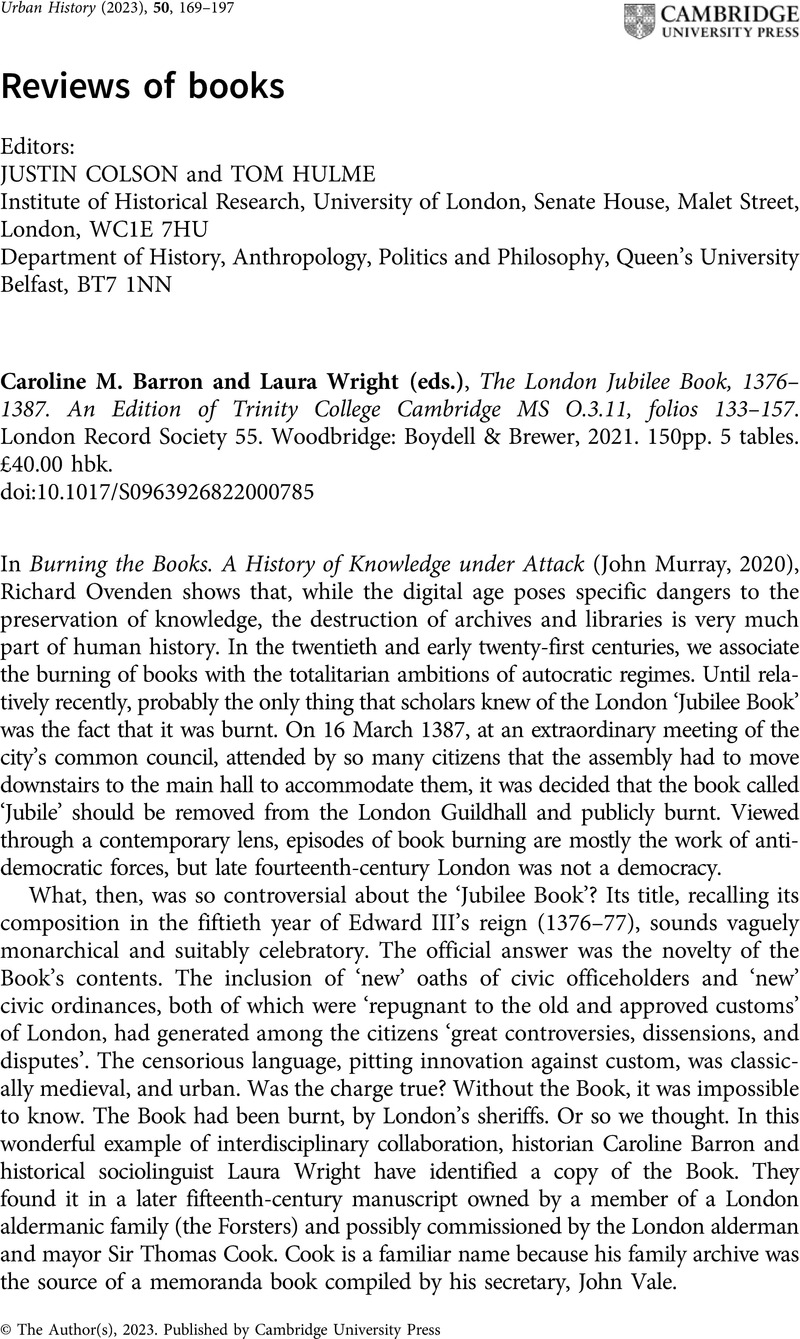No CrossRef data available.
Published online by Cambridge University Press: 27 January 2023

Editors:
JUSTIN COLSON and TOM HULME
Institute of Historical Research, University of London, Senate House, Malet Street, London, WC1E 7HU
Department of History, Anthropology, Politics and Philosophy, Queen's University Belfast, BT7 1NN